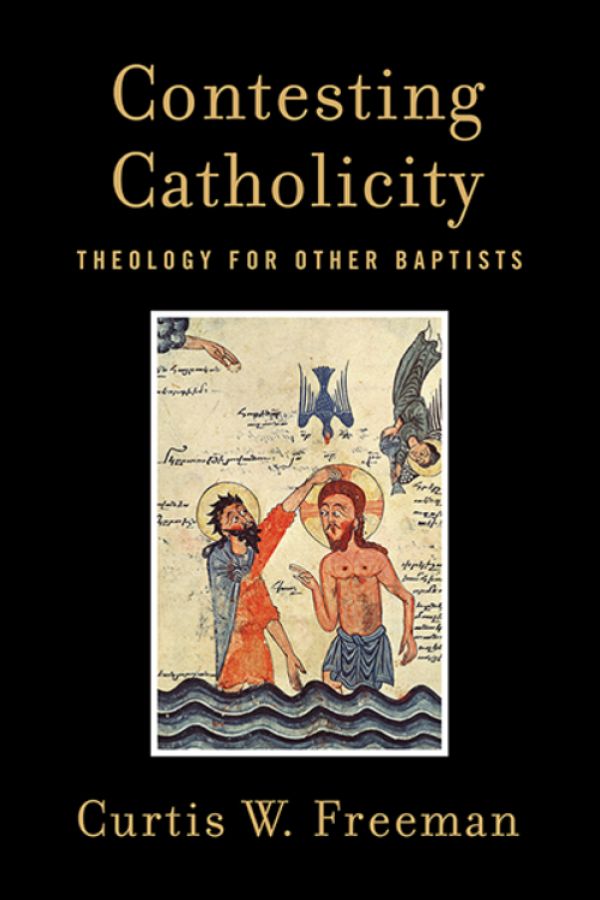Curtis W. Freeman, research professor of theology and director of the Baptist House of Studies at Duke Divinity School, has written a new book in which he argues that Baptists are connected with all Christians in a quantitative sense of ecumenical relations and in a qualitative sense of a common faith enacted in Word and sacrament.
Baylor University Press plans to publish the book, Contesting Catholicity: Theology for Other Baptists, on Sept. 15.
In Contesting Catholicity, Freeman offers an alternative Baptist identity, an “Other” kind of Baptist, one that stands between the liberal and fundamentalist options. By discerning an analogy among some late modern Baptist preachers, 17th- and 18th-century Baptist founders, and early patristic theologians, he narrates the Baptist story as a community that grapples with the convictions of the church catholic.
The analogical conversation across the centuries enables Freeman to gain new leverage on all of the supposedly distinctive Baptist theological identifiers. From believer’s baptism, the sacraments, and soul competency, to the Trinity, the priesthood of every believer, and local church autonomy, his historical reconstruction demonstrates that Baptists did and should understand themselves as a spiritual movement within the one, holy, catholic, and apostolic church.
A “catholic Baptist” is fully participant in the historic church and at the very same time is fully Baptist, Freeman says, with this radical Baptist catholicity being more than a quantitative sense of historical and ecumenical communion with the wider church. This Other Baptist identity envisions a qualitative catholicity that is centered on the confession of faith in Jesus Christ and historic trinitarian orthodoxy enacted in the worship of the church in and through word and sacrament.
Freeman is an ordained Baptist minister and serves on the Commission on Doctrine and Christian Unity of the Baptist World Alliance. He has been at Duke since the fall of 2001.
